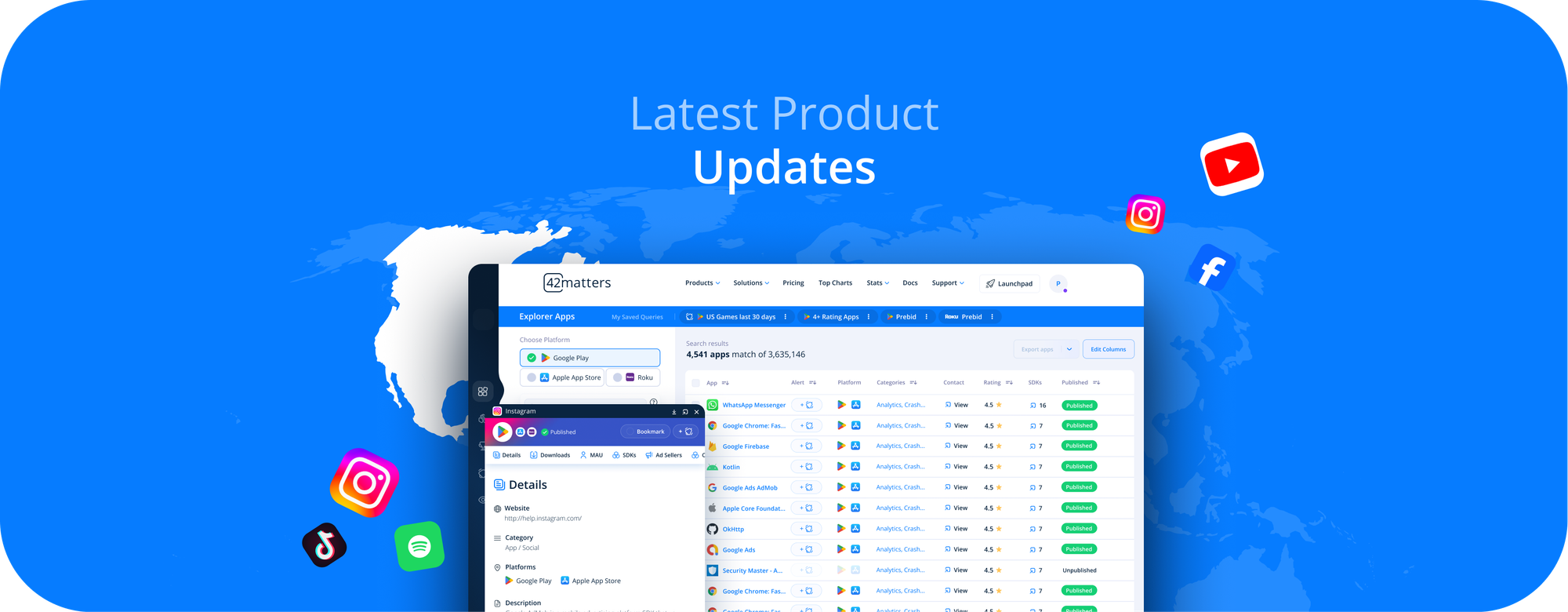The mobile app market is growing – and with it, a wide range of opportunities for developers, marketers, and more. Mobile enterprise has long been hailed as the ‘next biggest market,’ with the average amount of time spent browsing each month on a mobile device up to 66 hours in the UK. Mobile apps, on the other hand, clock around 2.3 hours of use every day per user.
With around 4.93 billion smart phone users around the world, it presents an unprecedented level of opportunity for app developers – but it also means taking the steps necessary to discover the right place to use those apps and make the most of the changing mobile app market.
Understanding Mobile Trends
Internet users want to be able to take in information at whatever pace appeals to them, using data at an astonishing rate. In most countries, however, users now face metered data usage, which means that their browsing behaviour is going to change accordingly. As a result, users will find themselves looking for apps that don’t use large quantities of data in order to function – and they’ll be willing to pay more for apps that provide that level of convenience. There are several other key trends that are set to transform the way many users interact with their devices.
Waiting for the third highest-ranked platform
Google and Apple have already cornered their share of the market, with Android and iPhone devices most commonly found in the hands of users. Samsung, Microsoft, HP, and RIM, on the other hand, aren’t out of the market yet. As a result, app developers may find themselves in high demand, both when it comes to producing apps for these platforms and for modifying existing apps so that they can be easily used no matter what platform the user prefers.
Applications will increase in use across devices
Smart TVs, laptops, desktop computers, and other devices will become increasingly important as a generation that is used to the behaviour of smart phones and tablets waits for the technology to keep up. Apps will shift from being a feature of fairly specific devices to being expected across devices – and platforms that fail to keep up will find themselves obsolete.
Quality is paramount
There are a wide range of great apps on the market – and that’s the kind of performance that users expect from every app that they use. Now, they’re looking for high-quality performance whether they’re playing a new game or using an app to access important banking information.
The importance of mobile is on the rise
An increasing number of users are turning to mobile devices on a regular basis to take care of activities that were previously spread across a wide range of devices. The more users turn to these devices, the more important apps will become.
Engagement is more important than downloads
Sure, you want users to download your app – especially if you’re charging a fee for it. Apps that engage users, however, are far more important than simply apps that users are willing to download. In-app purchases have the potential to make as much as 20 times more for app creators than they’re making from downloads of those apps alone – and that’s with just 5% of users making those in-app purchases.
Games continue to be important
Mobile users are fascinated by games. Revenue from games continues to increase each year, and most industry professionals expect mobile game use to continue to increase in the coming years. More than 75% of the revenue currently generated in the iOS App Store is driven by mobile games – making games an important source of revenue for many app developers and even for the companies that are interested in making the most of their existing platforms.
Finding Your Place in the Mobile App Market
In today’s highly digital society, if you can dream it, there’s probably an app out there that can accomplish it – and if there’s not, you have room to develop an app that will fill in a vital gap. Chances are, many users will be appreciative of those efforts!
In 2016, there were more than 90 billion app downloads in the iOS App Store and Google Play. While games may represent a large portion of that number, there are also apps across multiple different industries that have significantly impacted the way people choose to interact with the businesses they use most often.
Shopping/Retail
Many stores have turned to their own apps in order to increase sales – and as it turns out, a great app can increase sales both in-store and online. Store apps don’t simply have to be a platform for issuing reminders about sales and events, though push notifications are a great way to keep users informed about everything happening in-store. Excellent retail apps can also:
- Provide more information about products that users are considering
- Make price checks a snap
- Send users on in-store games and scavenger hunts to help them earn prizes, discounts, and more
- Allow users to more easily locate items within the store, whether from a picture or an item description
- Provide increased convenience for users, including easier or smoother check-out practices
- Much more!
Retail apps are still developing. While many big-name retailers already have their own apps, smaller retailers are also discovering their value. Offering an app is a great way to expand understanding of customer loyalty and offer frequent customers incentive to keep coming back to the store.
Fitness
Increasingly, customers are turning to apps to help manage their overall fitness. Now, calorie counting, step counting, and other key aspects of fitness can be measured from one convenient device that interacts with the mobile platforms users are already utilizing.
Effective fitness apps don’t just offer fancy bells and whistles that will help attract customers to the platform. They also offer features that keep them using the app long after the initial rush of resolution has worn off. This may include features like:
- Personalisation that allows each user to customise the app experience, transforming their ability to track their own fitness
- Tracking over time, to allow users to see their own improvements more clearly
- Notifications and encouragement that will help keep users moving forward with their fitness resolutions
Fitness apps often lose their customers within a few months of the initial download. More effective apps, however, are able to keep users who are focused on lifestyle change – and as a result, they’re able to transform the way the company does business.
Banking
Carrying banking information in the palm of the user’s hand makes it easier than ever to access critical information, transfer funds, make payments, and more. Users who are looking at great banking apps are interested in a whole-package approach: the more they can do with their app, the happier they are with their bank.
Great banking apps may also send out push notifications to let users know about big purchases, send alerts when the balance dips below a certain amount, or other key features that will keep users engaged with their banking apps long after the initial rush wears off.
Education
Learning can take place anywhere, any time – especially when it’s possible to carry an education app on a mobile device without even adding weight to the user’s pocket. Education apps are increasing in popularity–and not just for schoolchildren.
While parents will download programs that will help their children improve their educational outlook, adult learners are looking for language apps, financial advice, and a wide range of other learning platforms. Solid education apps will help engage users and make it easier to improve their understanding of the subject in question, including features like:
- Interactive learning, including live sessions with tutors in many apps
- Practice tests, especially for apps that are intended to help users achieve certification or pass an exam
- Valuable content that is easy for users to absorb and covers a wide range of topics related to the subject
- The ability to use the app to go deeper into subject areas that genuinely interest the user
- Social integration, whether within the app or as a connection to larger social media platforms
Great education apps should also be easy and intuitive to use. Users want to be able to use the app to learn about their chosen content, not spend their time simply learning how to use the app.
Entertainment
This simple category covers a wide range of topics. Whether you’re creating a video-viewing platform or designing a new game, however, there are several key things to take into consideration. First and foremost, users are looking for convenience: they want an app that is smooth, intuitive in design, and that typically functions exactly as they intend.
When it comes to entertainment, users are also looking for something unique. Your app needs to offer something that the big names aren’t already giving them, or users will quickly become frustrated with the experience and turn elsewhere for their needs.



